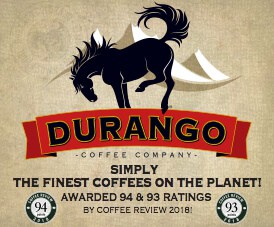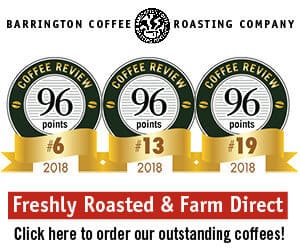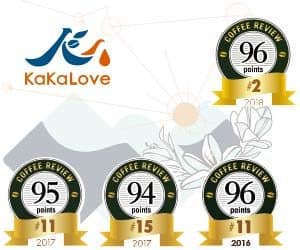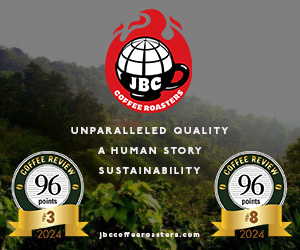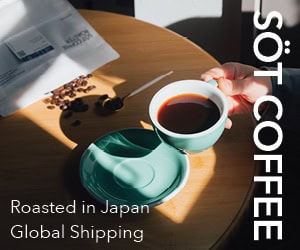Produced by smallholding members of the FUDAM Association of southern Colombia from trees of the Castillo, Caturra and Colombia varieties of Arabica. Processed by the washed method (fruit skin and pulp are removed before drying). JBC Coffee Roasters’ vision is simple: “let the coffee lead the way” through sourcing and roasting the best and most unique coffees available and rewarding the farmers
SEARCH RESULTS
Kaguyu
Produced by members of the INOI Farmers’ Society from trees of the SL28, SL34 and Batian varieties of Arabica. JBC Coffee Roasters’ vision is simple: “let the coffee lead the way” through sourcing and roasting the best and most unique coffees available and rewarding the farmers who grow those coffees with substantial premiums. Visit www.jbccoffeeroasters.com or call 608-256-5282 for more
Halo Hartume
Yirgacheffe coffees like this one are largely produced from traditional Ethiopian landrace varieties of Arabica long grown in the region. A wet-processed or “washed” coffee version, meaning the fruit skin and pulp were removed from the beans immediately after harvesting and before drying. JBC Coffee Roasters’ vision is simple: “let the coffee lead the way” through sourcing and roasting the best
San Diego Natural
Grown by smallholding farmers in the admired Tarrazu region of Costa Rica and processed by the natural method at Beneficio San Diego. JBC Coffee Roasters’ vision is simple: “let the coffee lead the way” through sourcing and roasting the best and most unique coffees available and rewarding the farmers who grow those coffees with substantial premiums. Visit www.jbccoffeeroasters.com or call
Buna Boka #1
Southern Ethiopia coffees like this one are produced from distinctive traditional Ethiopian landrace varieties of Arabica long grown in the region. This lot was processed by the wet or washed method (fruit skin and pulp are removed before drying). JBC Coffee Roasters’ vision is simple: “let the coffee lead the way” through sourcing and roasting the best and most unique coffees available and
El Jardin
Produced by Luis Alvaro Vargas entirely from trees of the Caturra "Chiroso" variety of Arabica and processed by the washed method. JBC Coffee Roasters’ vision is simple: “let the coffee lead the way” through sourcing and roasting the best and most unique coffees available and rewarding the farmers who grow those coffees with substantial premiums. Visit www.jbccoffeeroasters.com or call
Monte Alban
Produced by smallholding farmers in the Oaxaca region of Mexico from trees of the Bourbon and Typica varieties of Arabica and processed by the washed method. JBC Coffee Roasters’ vision is simple: “let the coffee lead the way” through sourcing and roasting the best and most unique coffees available and rewarding the farmers who grow those coffees with substantial premiums. Visit
Benti Nenqa #209 Ethiopia
Southern Ethiopia coffees like this one are largely produced from distinctive indigenous Ethiopian varieties of Arabica long grown in the region. Processed by the natural method (dried in the whole fruit). JBC Coffee Roasters’ vision is simple: “let the coffee lead the way” through sourcing and roasting the best and most unique coffees available and rewarding the farmers who grow those coffees
Andi Sumatra
Produced by Armiyadi, a small farm in the Aceh region of Sumatra, entirely from trees of the Ateng Super hybrid variety of Arabica and processed by the Indonesia wet-hulled method. JBC Coffee Roasters’ vision is simple: “let the coffee lead the way” through sourcing and roasting the best and most unique coffees available and rewarding the farmers who grow those coffees with substantial premiums.
Las Gravilias Costa Rica
Certified organic. Produced by Roberto Fabrizzio Marin Jimenez from trees of the Catuaí and Caturra varieties of Arabica and carefully processed by the mechanically washed method. JBC Coffee Roasters’ vision is simple: “let the coffee lead the way” through sourcing and roasting the best and most unique coffees available and rewarding the farmers who grow those coffees with substantial premiums.
Karani Kenya
Produced by smallholding farmers and processed at the Karani wet mill from trees of the SL28, SL34, Ruiru 11 and Batian varieties of Arabica. JBC Coffee Roasters’ vision is simple: “let the coffee lead the way” through sourcing and roasting the best and most unique coffees available and rewarding the farmers who grow those coffees with substantial premiums. Visit www.jbccoffeeroasters.com or call
Miraflores Colombia
Produced by Gilma Munoz from trees of the Caturra, Colombia and Castillo varieties of Arabica and processed by the washed method. JBC Coffee Roasters’ vision is simple: “let the coffee lead the way” through sourcing and roasting the best and most unique coffees available and rewarding the farmers who grow those coffees with substantial premiums. Visit www.jbccoffeeroasters.com or call 608-256-5282
Karimiuki Espresso
This exceptional coffee was selected as the No. 7 coffee on Coffee Review’s list of the Top 30 Coffees of 2020. Produced by smallholding members of the Rungeto Farmers' Cooperative Society of the SL28, SL34, Ruiru 11 and Batian varieties of Arabica. JBC Coffee Roasters’ vision is simple: “let the coffee lead the way” through sourcing and roasting the best and most unique coffees available and
Karimiuki Kenya
Produced by smallholding members of the Rungeto Farmers' Cooperative Society of the SL28, SL34, Ruiru 11 and Batian varieties of Arabica. JBC Coffee Roasters’ vision is simple: “let the coffee lead the way” through sourcing and roasting the best and most unique coffees available and rewarding the farmers who grow those coffees with substantial premiums. Visit www.jbccoffeeroasters.com or call
El Floral Colombia
Produced by Raul Lombana Horta of Finca El Floral from trees of the Caturra, Colombia and Castillo varieties of Arabica and processed by the wet, or washed, method. JBC Coffee Roasters’ vision is simple: “let the coffee lead the way” through sourcing and roasting the best and most unique coffees available and rewarding the farmers who grow those coffees with substantial premiums. Visit
Nano Challa #6 Ethiopia
Ethiopia coffees like this one are produced largely from local, indigenous varieties of Arabica. Produced by smallholding members of the Nano Challa Cooperative and processed by the wet, or washed, method (fruit skin and pulp are removed before drying). JBC Coffee Roasters’ vision is simple: “let the coffee lead the way” through sourcing and roasting the best and most unique coffees available and
Nano Genji #4 Espresso
Produced by the Nano Genji cooperative in Ethiopia’s Jimma Zone. Ethiopia coffees like this one are produced largely from local, indigenous varieties of Arabica. Processed by the wet or washed method (fruit skin and pulp are removed before drying). JBC Coffee Roasters’ vision is simple: “let the coffee lead the way” through sourcing and roasting the best and most unique coffees available and
Ignacio Quintero Colombia
Produced by Ignacio Quintero of the Caturra, Colombia and Castillo varieties of Arabica and processed by the wet, or washed, method. JBC Coffee Roasters’ vision is simple: “let the coffee lead the way” through sourcing and roasting the best and most unique coffees available and rewarding the farmers who grow those coffees with substantial premiums. Visit www.jbccoffeeroasters.com or call
Bella Carmona Guatemala
Produced by Luis Pedro Zelaya Zamora of the Bourbon and Caturra varieties of Arabica and processed by the wet, or washed, method (fruit is removed from the beans before drying). JBC Coffee Roasters’ vision is simple: “let the coffee lead the way” through sourcing and roasting the best and most unique coffees available and rewarding the farmers who grow those coffees with substantial premiums.
Kerinci Palompek Sumatra
Produced by smallholding members of the Koetintji Barokah Cooperative of the Andung Sari and Sigararutang varieties of Arabica and processed by the wet, or washed, method. JBC Coffee Roasters’ vision is simple: “let the coffee lead the way” through sourcing and roasting the best and most unique coffees available and rewarding the farmers who grow those coffees with substantial premiums. Visit


